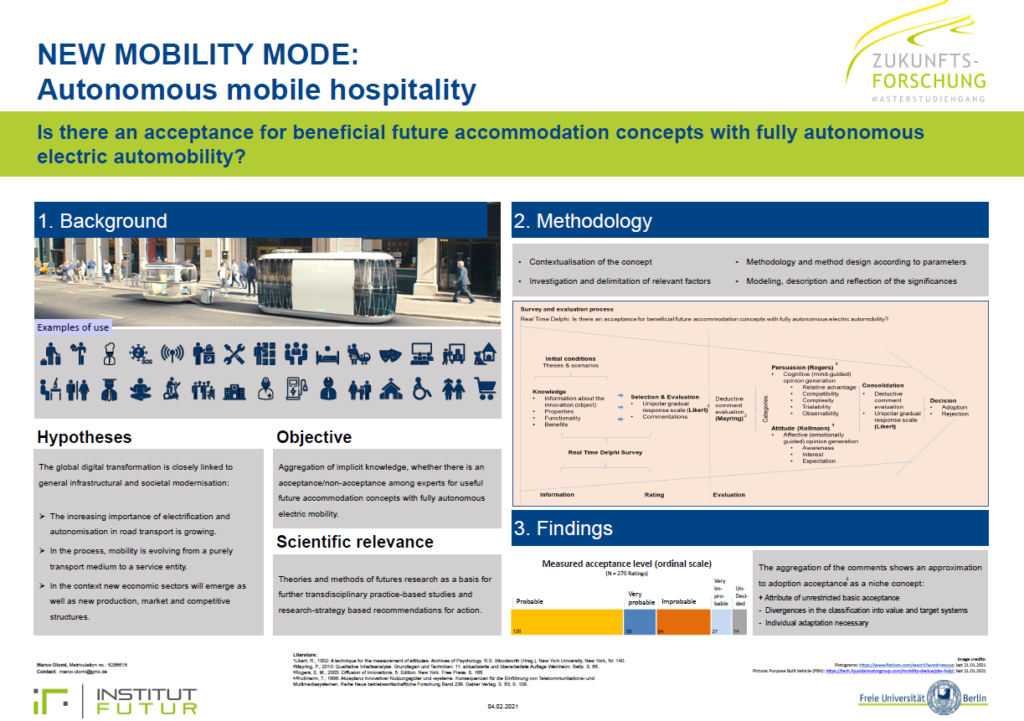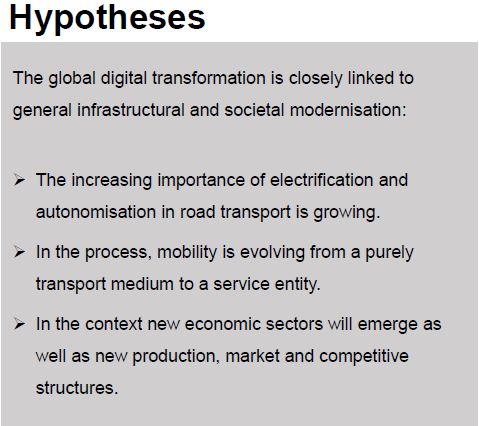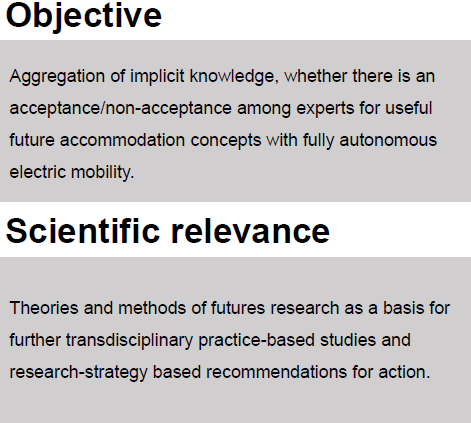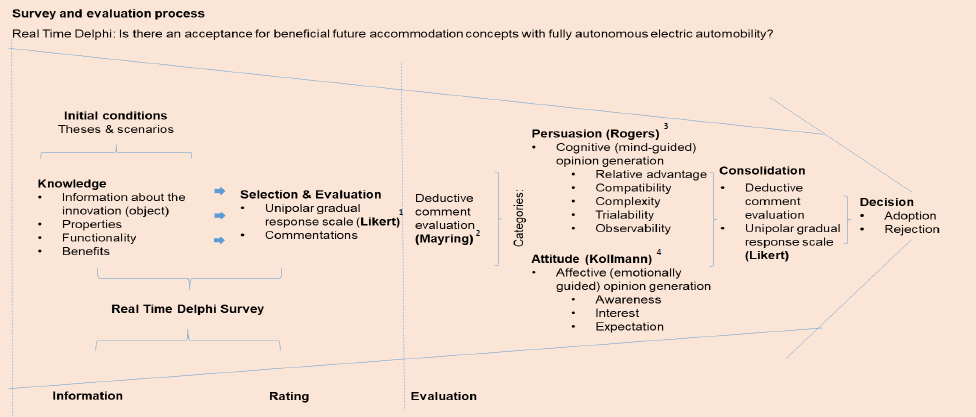Approach

The poster gives an overview of the Goodnit® approach to finding, identifying and evaluating complex questions.
Background
The question addressed here aimed at future mobility concepts that emerged from the images, theses and scenarios of future-oriented theories.

The use of autonomously driving electric units covers a wide range of applications: Hotels, restaurants and the hospitality industry in the broadest sense. Wellness, didactics and office. Church, health and entertainment. Workshop, first aid charging stations and emergency accommodation. Medical service, hospital, preventive care. Transport, storage and logistics. Childcare, security transport and rest area. And much more.
Past & present

The hypotheses as well as 20 theses and scenarios for data collection within the futurology method Real Time Delphi are based on comprehensive literature research and analyses of different topic-related media, expert interviews as well as participation in relevant professional symposia, congresses and exhibition formats.

Specifically, the future research method Real Time Delphi was used to ask 239 experts about the acceptance/non-acceptance of future beneficial accommodation concepts with fully autonomous electric mobility and the implicit knowledge was aggregated for the evaluation.
This resulted in new approaches for further transdisciplinary practical action studies and (research) strategic recommendations for action.
Methodology

After the contextualisation and the delimitation of the relevant factors for the creation of the initial conditions, a methodological conception took place within the Real TIme Delphi for the selection and evaluation by the experts by means of an ordinal scale and the comment function of each thesis or scenario.

The Real Time Delphi is characterised by the possibility of completing several rounds as a participant and viewing or commenting on the comments of all the protagonists or editing one’s own until the Real Time Delphi is closed.
The subsequent evaluation phase, in addition to measuring the acceptance characteristics by means of the ordinal scale, was carried out using a deductive comment evaluation with the categories from the persuasion phase of the innovation decision model according to Rogers and the attitude phase of the dynamic acceptance model according to Kollmann.
Findings

In the evaluation of the measured partial expressions, a „probable“ acceptance for such future concepts predominated.
The aggregation of the comments showed an approximation of adoption acceptance at least as a niche concept. Although the attribute of unrestricted basic acceptance is fulfilled, divergences in the classification in the societal value and target systems are still recognizable and individual adjustments in the concepts are necessary.
Thus, it was determined that there is a basic acceptance for future beneficial accommodation concepts with fully autonomous electromobility. However, further scientific and economic research is needed to determine the actual added value of the concepts for society.